10 Facts about Water
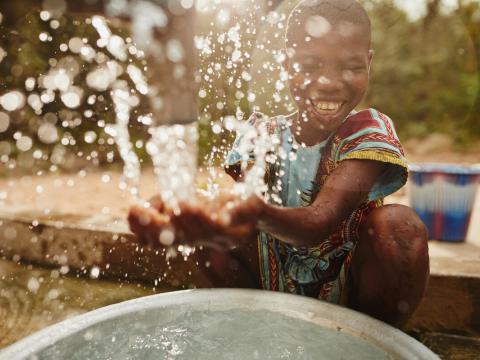
Water – it’s thirst-quenching, clean-making, germ-fighting and essential for every process in our human body. But when it is in short supply, every day is a fight for survival. Here are 10 facts about water that will make you look at the miracle of turning on the tap in a whole new way!
1) Billions of people still live without access to clean water
Water is a basic human right -- essential to human health, dignity, and the realisation of all other human rights. Still, the World Health Organisation estimates that 2.2 billion people globally (or one in three people) still live without it.
But don’t feel overwhelmed because there is good news - the world water crisis is solvable in our lifetime. And as a sponsor, you’re already part of the solution.
Here’s a fun fact. World Vision is the largest nongovernmental provider of clean water in the developing world, bringing clean water to one new person every 10 seconds.. ’s Actually, we are on track to bring water to everyone, everywhere we work by 2030.
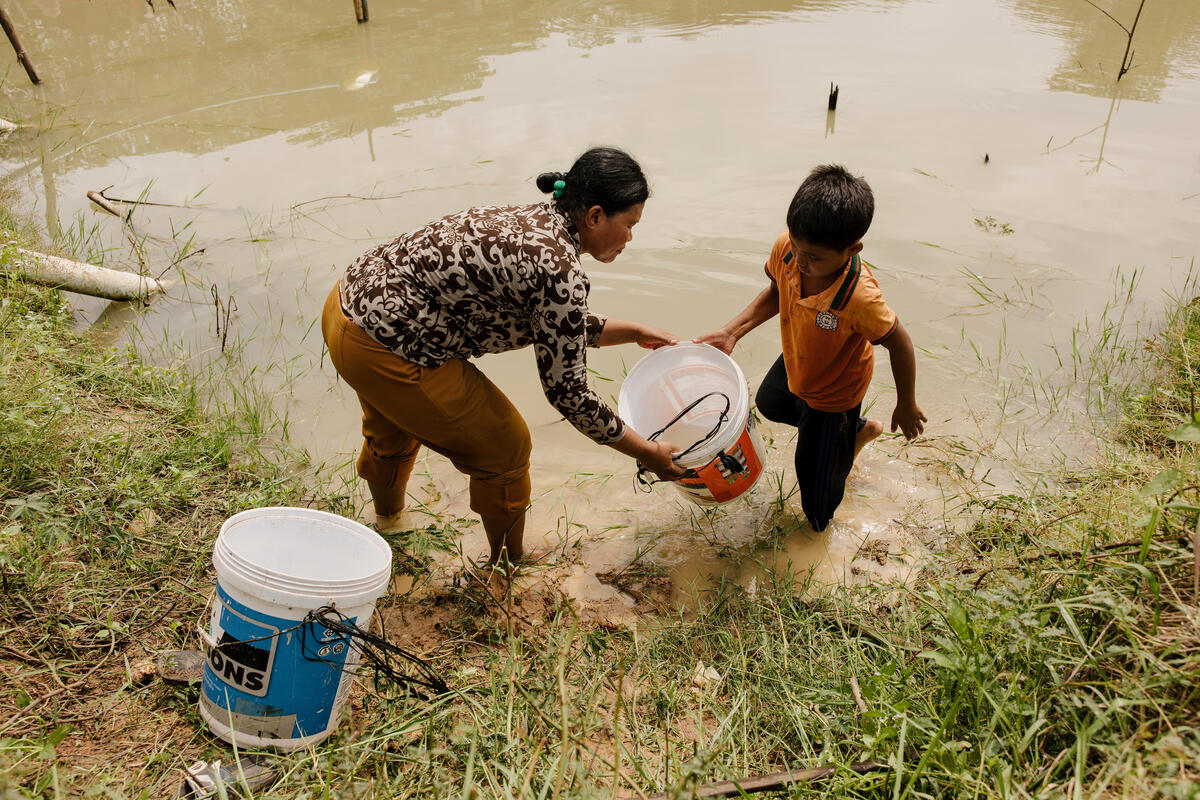
2) Every minute a child dies from a preventable water-related illness
Every life is precious. And yet right now, the world still loses more than 800 young lives each day to preventable illnesses like diarrhoea — a direct result of poor water and sanitation. Diarrheal disease remains the second largest cause of death for children under the age of five and an estimated 80 percent of childhood disease is related to unsafe drinking water, inadequate hygiene and poor sanitation. Did you know that disease caused by unsafe water kills more people than disasters and wars combined?
As COVID-19 taught us all, washing your hands is much more than good advice from your mum – it saves lives by preventing illness and reducing the spread of disease. Last year almost half a million people in communities where World Vision sponsorship works, learned about good hygiene and hand washing. Game changer.
3) Clean water makes the whole community healthier
In communities without clean water, good hygiene is simply not possible. Imagine what that means at home, but also in medical clinics and hospitals. With 38% of healthcare facilities in 54 low-income countries lacking an improved water source, adequate care is difficult. In this environment, illness and disease can spread like wildfire. Care and health systems are easily overwhelmed, and that’s when people die from preventable causes. Childbirth is dangerous without clean water, sanitation and hygiene and we see higher rates of death and disease for mums, and their newborn babies in this situation.
The ramifications of unclean water ripple out in lots of other ways too. When workers are sick, they don’t earn an income, and everyone is less productive. Families spend more time caring for sick loved ones. Precious income is outlaid to cover medicine and health expenses, with less for good food, clothes, or school supplies. Kids miss school. Carers are forced to make risky decisions. A child on the right track can quickly be found on the wrong one. The cycle continues.
But when you sponsor a child and give them access to clean water, you help them and their community bust this cycle for good.
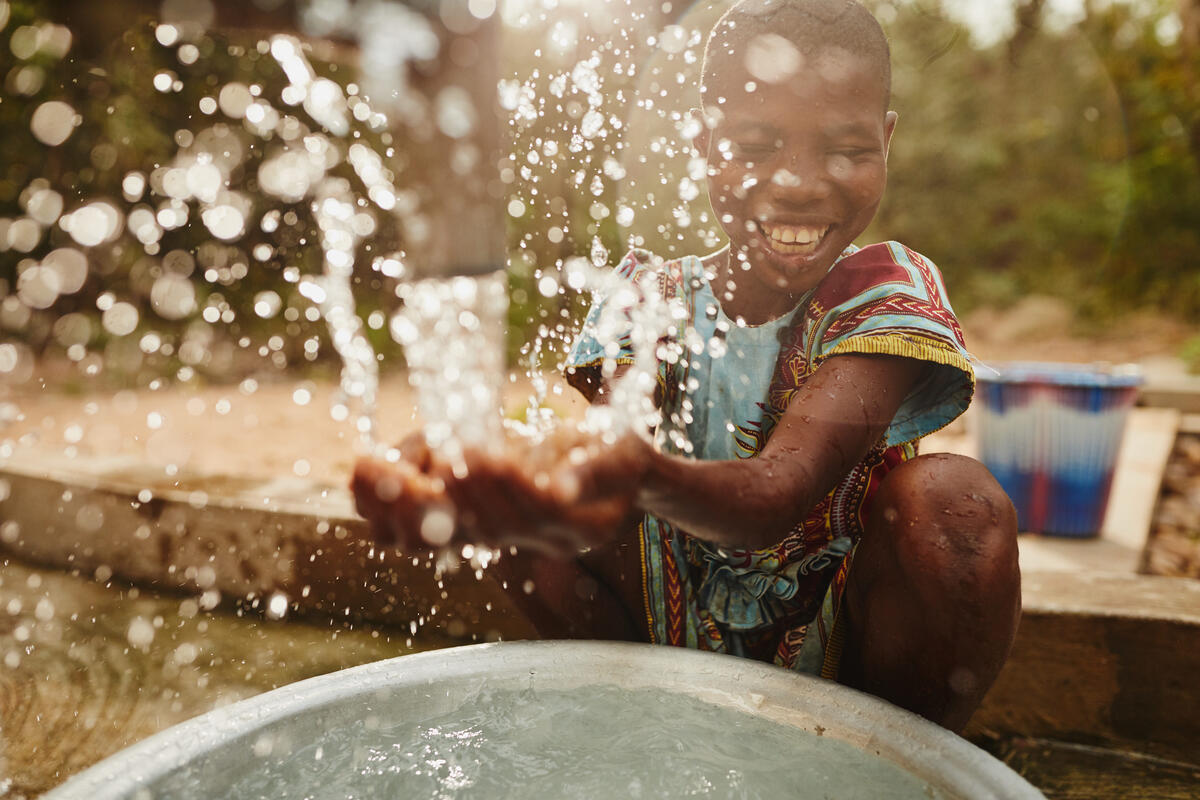
4) Water puts money in people’s pockets
It’s not something you often hear discussed in a government’s annual budget announcement, but clean water is a building block of economic growth. In countries without clean water, economic growth decreased by around a third. Health worsened, food production was reduced, and poverty was exacerbated. These communities can become locked in poverty for generations.
But with access to clean water, people spend less time collecting it or being sick from it, so they can be productive in other ways. They can focus on watering their crops and livestock and diversify their incomes. Children spend more time at school, boosting their income-earning abilities for their future.
Providing a community with water also creates jobs. World Vision employs local people in water initiatives, and this paid work also provides income and a strong sense of purpose. We work with communities to drill, develop, and repair wells and other vital water points. Local community members learn how to keep water flowing, and they oversee the building of latrines and hand-washing facilities. The whole community is involved in promoting healthy hygiene practices through education and behaviour change programs.
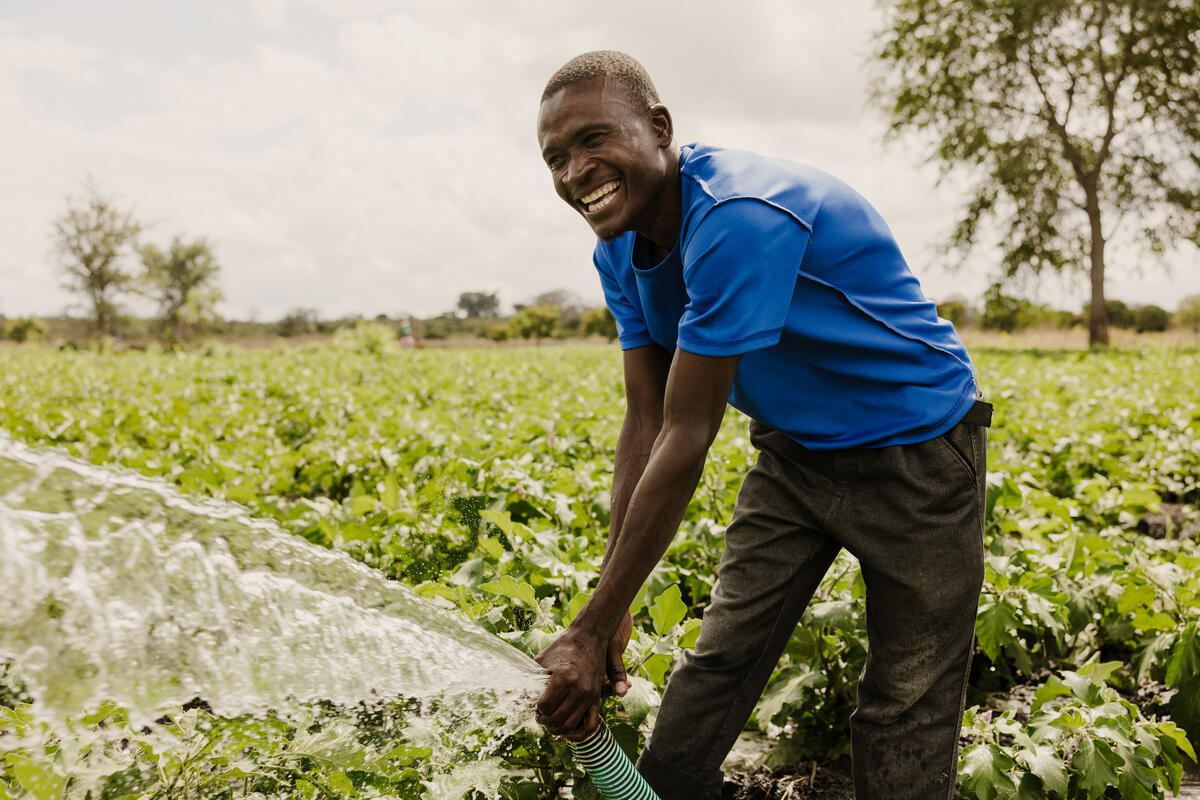
5) Women and girls carry the burden of water - literally
Women and girls are responsible for 80% of water collection in households without their own water supply. Time spent collecting water is estimated to be more than 200 million hours, with the average woman living in rural Africa walking around six kilometres every day, carrying 18 kilograms of water. It’s a colossal waste of women's and girl’s time and it makes it difficult for girls to attend school and for women to realise their economic potential. Imagine how much more these women could achieve if they didn’t have to spend that time carrying water each day?
The journey itself is also often unsafe – travelling long distances, heightened risk of sexual assault or violence, death from dehydration (which is sadly common) or dangerous hazards along the way (think mines, hostile enemies, poor construction, falling into the well itself and drowning). By supporting communities to tackle water problems, sponsors are also helping tackle gender inequality that holds women, children, and their communities back.
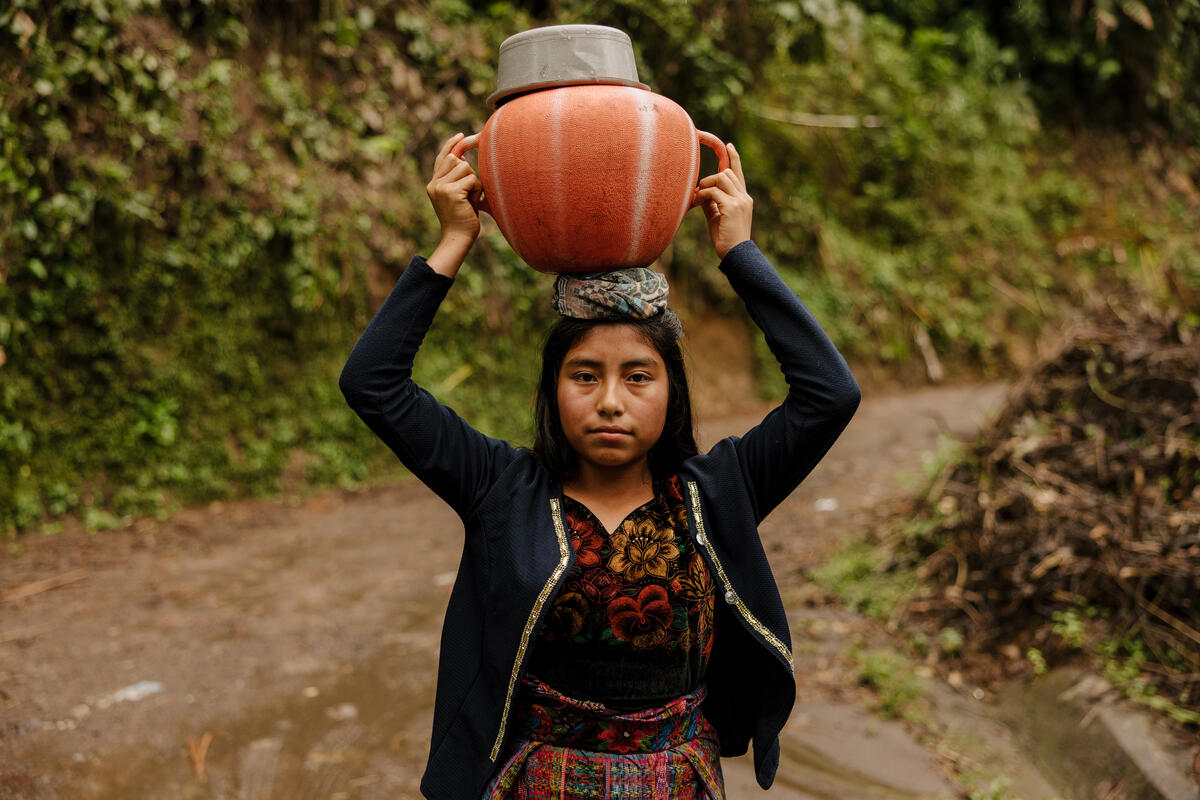
6) Periods are a pain and a source of shame without water
When there is a lack of clean water and private toilets for girls, it makes managing a monthly period in a private way very difficult. Many girls skip school or drop out as a result. “As girls, you miss lessons because you are scared to mess yourself up,” explains 16-year-old Womba, in Zambia.
A lack of clean water can stigmatise menstruation as something shameful, and negatively impact a woman’s ability to learn, work, and earn income by eroding her self-confidence and independence. When you sponsor a child, you help bring an end to period stigmatisation and give girls the essentials they need – toilets, water and information – to take hold of education, employment and leadership opportunities for life.
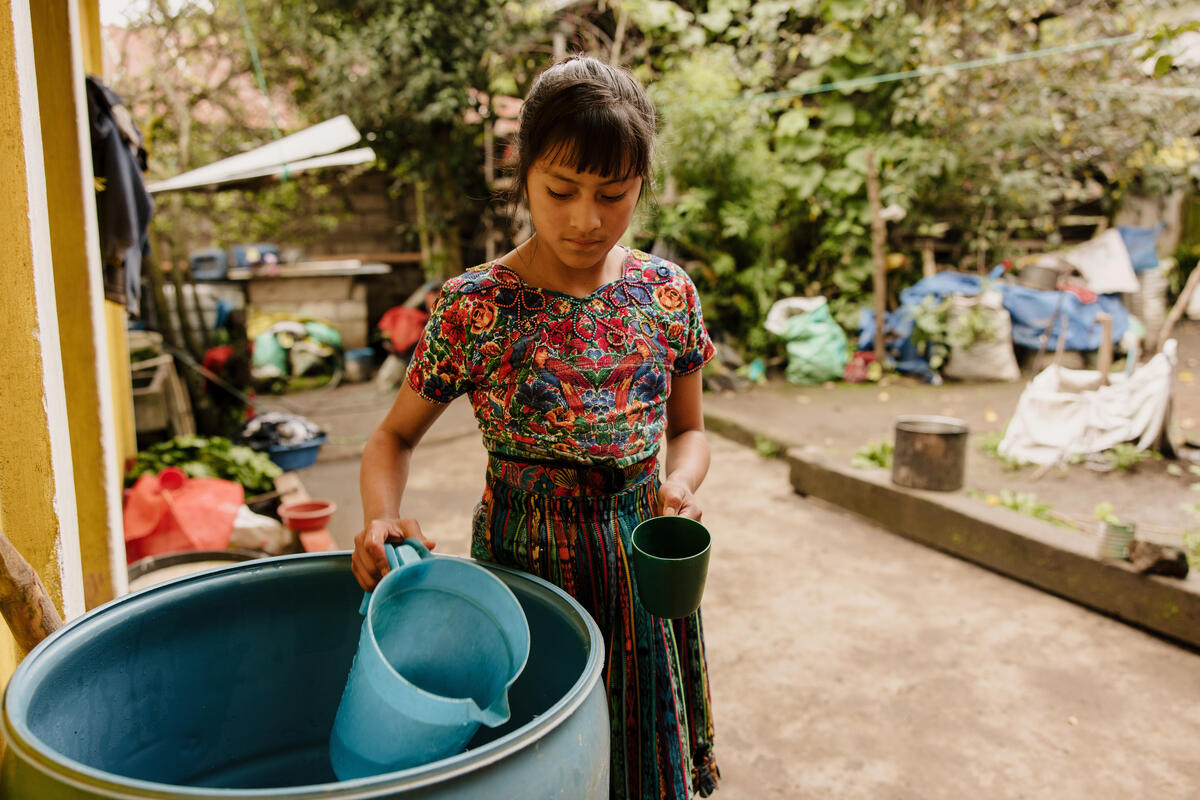
7) Water insecurity impacts mental health
There’s a significant association between a lack of access to safe drinking water and feelings of anger, frustration and fear, as well as longer-term psychological impacts of depression and grief. Emotional distress is higher in people who lack access to safe drinking water and sanitation services. This can be especially true for women, with lack of access to water a significant cause of unhealthy stress. A study of women in Nepal showed that improving water security was essential to psychological health.
These negative emotional states make the challenges faced in developing countries harder. Reducing this stress factor associated with water is one more way that sponsors are empowering children and communities to change their world for the better.
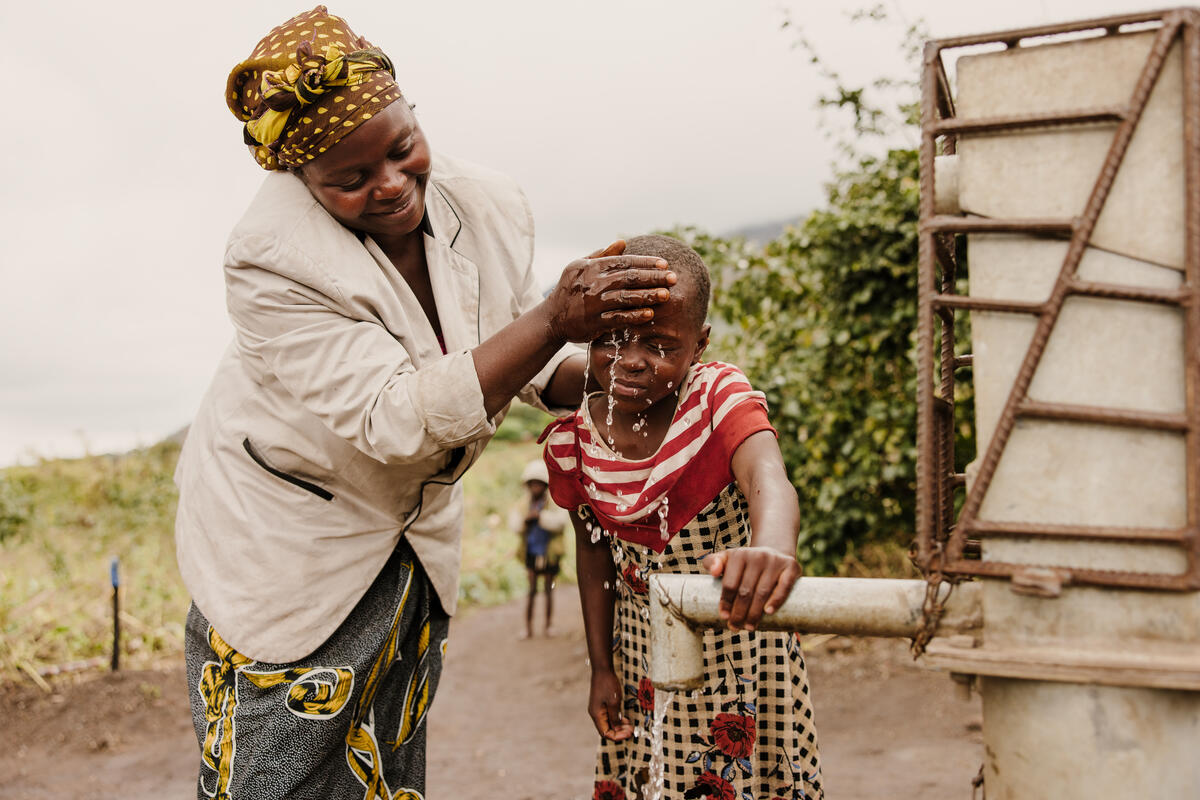
8) Climate change is making water a bigger deal than ever
The world has recently experienced the hottest years on record for the globe. Our global climate is projected to keep warming, with increased intense weather events and more droughts and heat waves. Droughts are becoming more severe with five times as much land likely to be under extreme drought by 2050.
That has real repercussions for water supplies: extreme weather and changes in water cycles can make it even more difficult to find safe drinking water. Rising sea levels have been found to turn previously freshwater sources salty. When already scarce water resources are compromised, competition for water can lead to conflict. For people already struggling with vulnerable water supplies, their futures are at high risk as climate change intensifies the risks and impact of water scarcity.
By establishing new and diversified water sources as well as introducing communities to climate-smart agricultural techniques and diverse livelihood opportunities, sponsors are ensuring children and communities have safe access to water and are also better equipped to prepare and respond to climate change events.
9) Water infrastructure is just the beginning
Drilling water wells or installing pumps is a critical first step – but ensuring that communities know how to use water to stay healthy is the key to changing their health and well-being for good. Infrastructure and education need to go hand-in-hand.
That’s why World Vision sponsors to power a network of staff and volunteers who help children and communities to learn about health, sanitation and hygiene. Those who’ve been trained in turn pass what they’ve learned on to their neighbours and beyond, and the ripple effect continues. Sponsorship is a powerful catalyst that provides the support, tools and know-how that triggers the change.
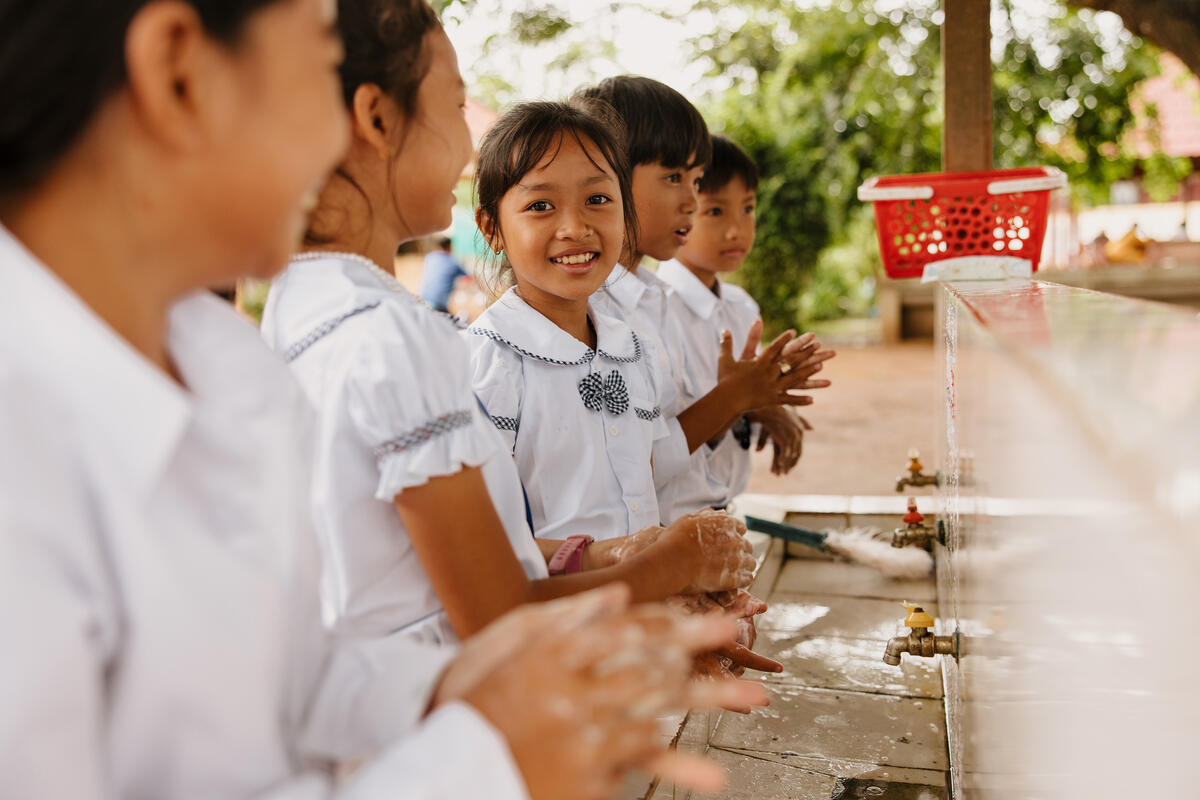
10) Water is a powerful agent of change
Water plays a critical role in quality of life and development. A lack of water threatens lives and amplifies suffering, but clean, safe water is a foundation of health, well-being, peace and prosperity. Water can create waves of change for families, communities, countries and the world.
Right now, every day, sponsors are helping communities around the world to transform their futures with water. And we’re making progress! In the last 10 years, we’ve helped an estimated 31 million people to get clean water, and we aim to reach another 15 million people with water by 2026.
Will you join us?
When you sponsor a child, water is just one way you help a child and their whole community to unlock a better future.
Giving clean water is a game changer. It empowers communities to break free from poverty, for good.